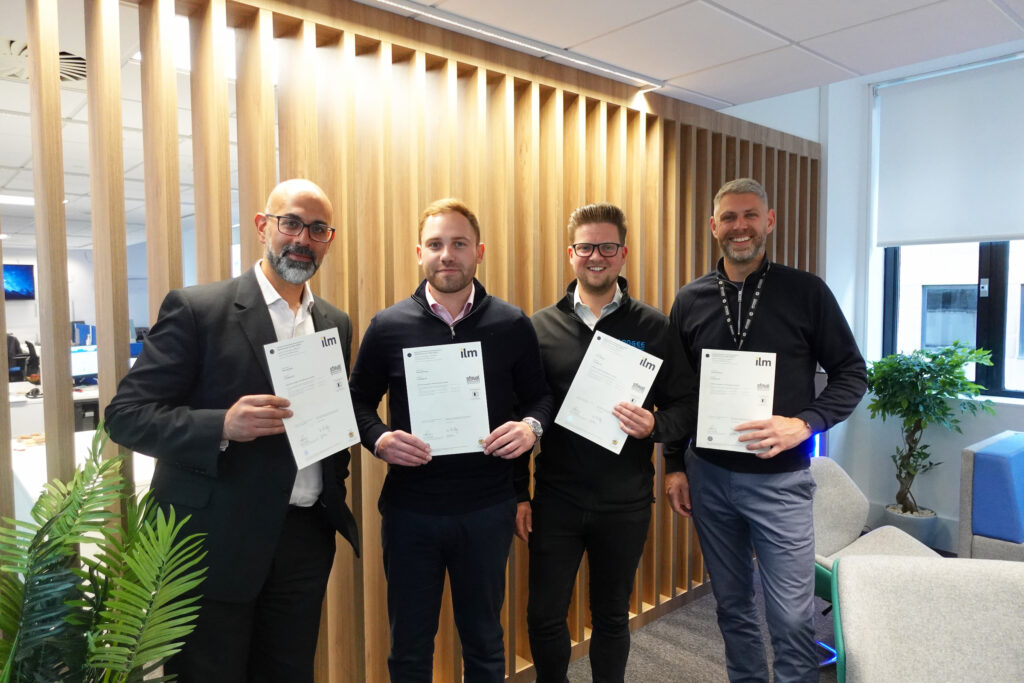How employees are coached is a key component of fostering a healthy company culture – and to be successful, a coaching philosophy must be led consistently from not just the CEO, but all directors and senior leaders.
As part of Apogee’s investment in its coaching philosophy, four directors attained the ILM Level 5 Effective Coaching & Mentoring qualification - facilitated by delivery partner Consalia, the UK's only business school dedicated to sales.
Made up of three modules, the Coaching for Sales Transformation programme required participants to build a business case for coaching and mentoring practices; complete a minimum of 18 logged hours of practical coaching and mentoring within the organisation; and carry out extensive self-review of their coaching performance.














































